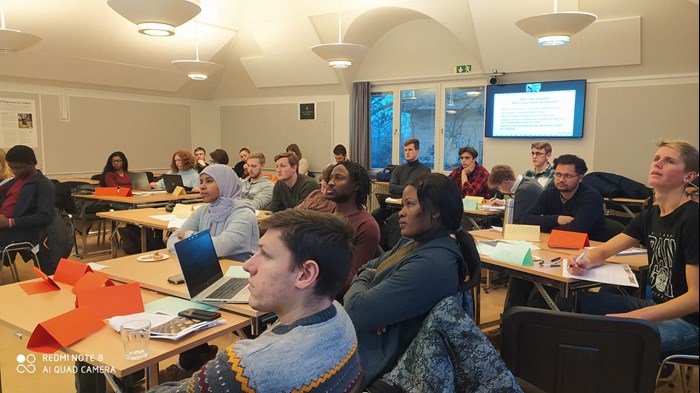Forest Roots for Global North-South Bridge
At SLU, internationalization is gaining momentum, and the Faculty of Forest Sciences is at the forefront, empowering the Global North-South's roots. Challenging it may sound, but the faculty is building grounds to illustrate how it works.
A new international course, Global Forests and Land-use Decisions (GFLuD), for the MSc Euroforester program, has kick-started in Alnarp. The 30-course participants from Bangladesh, Nigeria, Nepal, the Netherlands, and many other countries, including Sweden, are interacting with world-renowned experts, change-makers, practitioners, and communicators of forest policy and land-use decisions. Using ‘real’ case studies, participants are unraveling concepts and ethics of international frameworks and implementation at the community level in diverse forested landscapes. Importantly, they are connecting the dots on the consequences of how deforestation-free policy and land use change in one hemisphere impacts the others.
Bottom-up approach
To empower low-middle-income countries, scientists are expected to recognize the global south as an ‘equitable’ partner in setting the research agenda, building capacity, and sharing knowledge. Yet, the global north continues to set the research priorities, often in consultation, but without the active engagement of local partners from the global south. One such project, funded by SLU Global seed funds, is making efforts to reverse the trend with a ‘bottom-up’ approach. The project builds the capacity of community-based forest organizations from tropical countries to write case studies by involving them in a case study writeshop (a writing workshop). These case studies – community-based forest governance in protected areas of Cambodia, or forest conservation-led displacement in India’s Tiger reserve – were used as teaching materials for the GFLuD course.
̶ A unique way of creating knowledge that amplifies the voices of the community as writers, but also by sharing this knowledge with the students bridges the gap of scientific literature i.e., the writings by the communities through their lens, says Purabi Bose, who is the PI of this project, and GFLuD course leader.
The GFLuD course participants find such real community-led case studies highly valuable to engage in discussion of how decisions by stakeholders across diverse types of forests matters in forest science. Likewise, the aspiring scholars working with the Indigenous Peoples and Local Communities in the Global South can develop story-telling skills to reach a wider audience. The SLU S-Fak by creating an opportunity for local actors to engage as equitable partners in research is setting the tone of connecting them directly with the students for enhanced teaching and learning experience in its pedagogic approach.
Written by: Purabi Bose
